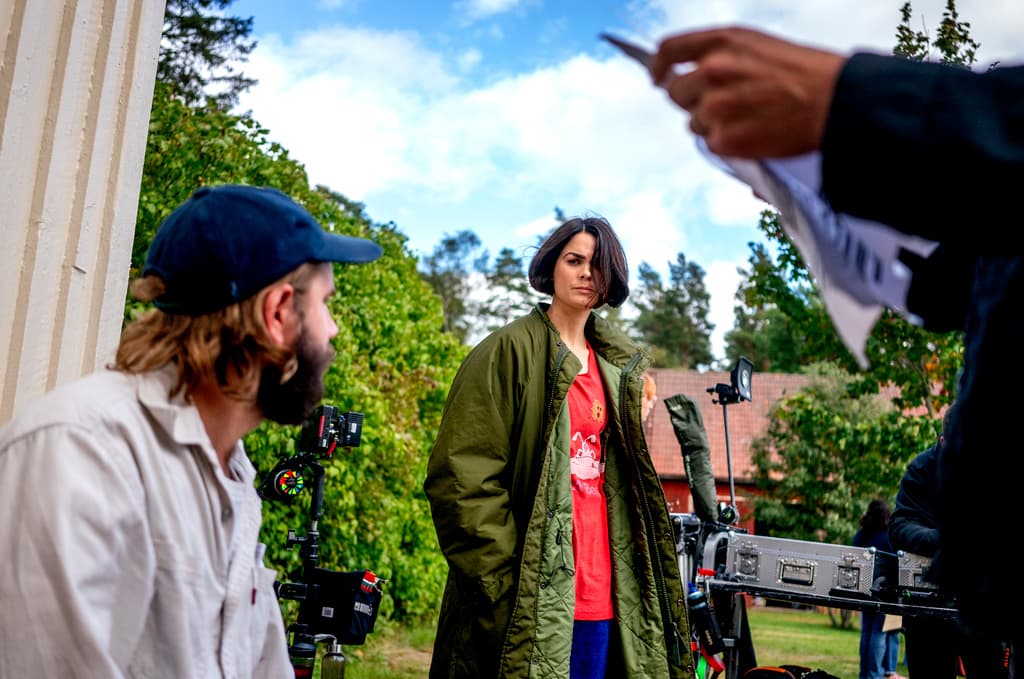Should Netflix and Disney be forced to finance Swedish film and TV? Where S and MP see a new way to strengthen the muscles for domestic production, M thinks it will be the viewers who will have to foot the bill.
Should international giants pay a "Netflix tax" to build up infrastructure for film and TV on different European languages? According to Anna Croneman, the new head of the Film Institute, it's a "colossally important" cultural policy question, which TT has asked top candidates from parliamentary parties ahead of the EU election.
The dividing lines between the political blocks – and also between Sweden and other European countries – become clear here.
Both Alice Bah Kuhnke (MP) and Heléne Fritzon (S) are positive about investigating a so-called audiovisual fee.
V and KD have not taken a stance – other bourgeois parties completely dismiss such a model.
Neither S, V, nor MP has taken up the proposal from EFAD (the European Federation of National Film Institutes) to require at least 30% of the content on streaming services to come from EU countries. Alice Teodorescu Måwe (KD) believes in free trade even for creative industries. To quota would be "protectionism", according to Karin Karlsbro (L), while Emma Wiesner (C) thinks quality and demand should decide.
How far will the EU go to ensure that musicians and creators get more money from music services like Spotify? There is a clear dividing line here between the red-green parties that want to EU-regulate to give creators higher compensation and the bourgeois parties that think the parties should negotiate themselves.
The bourgeois parties also voted against the resolution calling for new rules for music services that the EU Parliament adopted in January.
1. Do you think streaming services like Netflix, Apple, Disney should be forced to contribute financially to the production of European films and TV programs?
C: No. The EU can instead contribute to better conditions through the Creative Europe program.
M: No. It would neither benefit consumers nor the cultural offer.
L: No. Culture should be free from interference.
KD: Neither yes nor no.
SD: No. The risk is that the US would retaliate and trigger a trade war.
MP: Yes to an investigation. It's reasonable that these services contribute.
S: Yes to an investigation.
V: Has not taken a stance.
2. To protect European film, EFAD has proposed that at least 30% of the content on streaming services should come from EU countries. Are you for or against?
C: No. Film and TV programs should compete by being of high quality and people wanting to see them.
M: No. Quotas would mean that American music like Taylor Swift would have to be removed.
L: No. It's protectionism.
KD: No. We believe in free trade.
SD: No. It would lead to buying the cheapest and usually worst content.
MP: No. Instead, support co-productions, dubbing, and subtitling in different languages.
S: No. No quota on EU level.
V: No. Quota does not necessarily mean higher quality.
3. In January 2024, the EU Parliament adopted a resolution calling for a new EU framework for music services like Spotify to increase compensation for creators and increase transparency in how algorithms promote music. Are you for it?
C: No. It contained requirements for quota of European content.
M: No. Politicians should not decide how individual companies structure their contracts.
L: No. It contained some good parts but went too far.
KD: No. I do not want to regulate the compensation for artists.
SD: No. Compensation is best decided through negotiations.
MP: Yes. The EU should support and create rules for a fair and sustainable system.
S: Yes. Cultural workers must get better pay and be able to control their work.
V: Yes. It's important that transparency increases and fairer compensation comes about.






